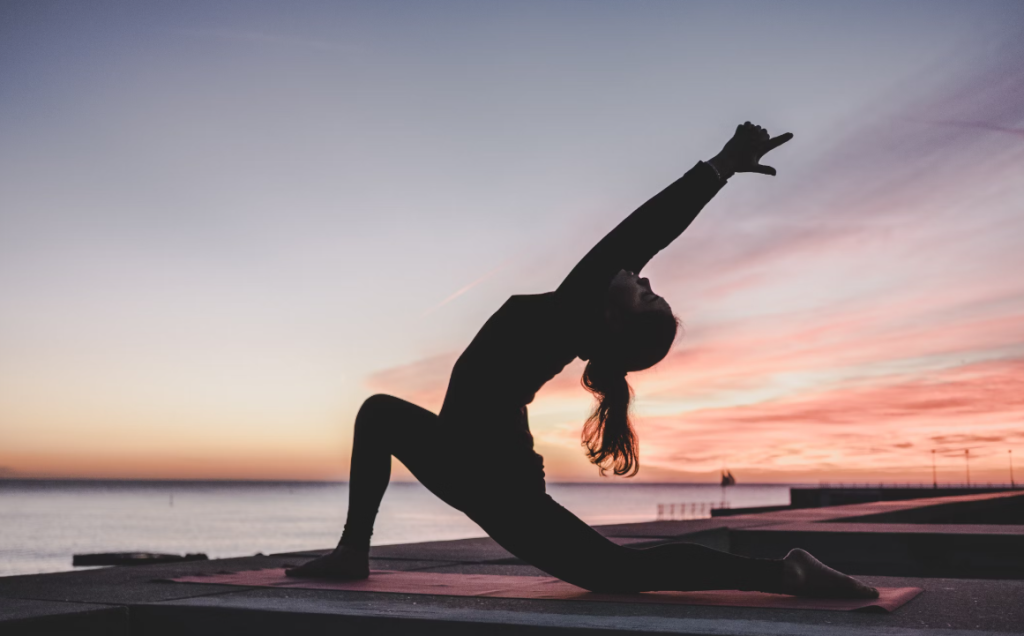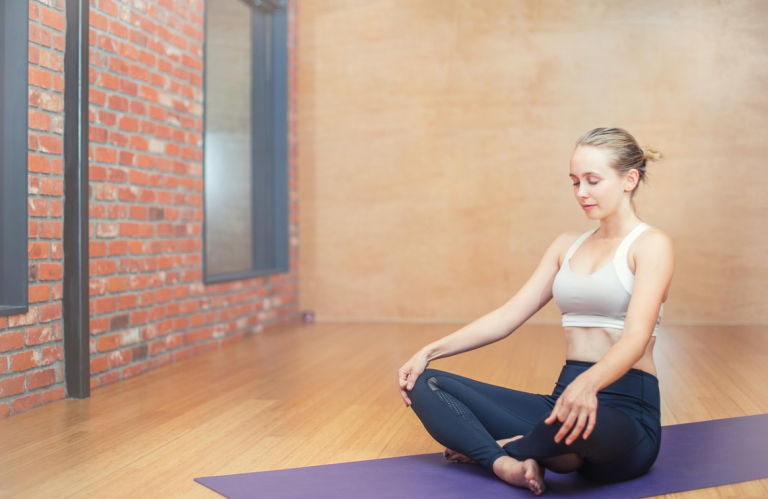
Yoga has been practiced for thousands of years, transcending its humble beginnings to become a global wellness phenomenon. It’s often associated with physical postures, but yoga offers much more than just a way to stretch and strengthen the body. It’s a powerful practice that can transform your mind, body, and spirit. In this article, we’ll explore how yoga can fundamentally improve your life by bringing balance, healing, and self-awareness.
Understanding Yoga: More Than Just Poses
At its core, yoga is an ancient practice that combines physical postures (asanas), breathing techniques (pranayama), meditation, and a philosophical approach to life. While many people focus on the physical aspect, yoga is much more than just poses. It’s a holistic practice that nurtures the body, calms the mind, and nurtures the spirit.
The Origins and Philosophy of Yoga
Yoga has its roots in ancient India, dating back over 5,000 years. Originally, it was a spiritual practice meant to unite the body, mind, and spirit with the divine. Over time, it has evolved into a more secular practice that can be adapted to meet a variety of needs. The philosophy of yoga encourages mindfulness, self-awareness, and living in harmony with nature.
The Four Major Pillars of Yoga
Yoga can be broken down into four main pillars: physical, mental, emotional, and spiritual. Each aspect works in harmony to create a balanced and healthy lifestyle. The physical practice, or asanas, helps improve flexibility and strength. The mental aspect of yoga cultivates focus and clarity through mindful breathing and meditation. Emotionally, yoga encourages inner peace and emotional stability, while spiritually, it fosters a connection to something greater than oneself.
The Physical Benefits of Yoga
Yoga’s impact on the body is undeniable. Whether you’re looking to improve flexibility, build strength, or simply get in better shape, yoga offers a variety of physical benefits.
Improved Flexibility and Strength
One of the most obvious benefits of yoga is its ability to enhance flexibility. Regular practice of yoga postures helps to stretch and lengthen muscles, increasing range of motion. But yoga isn’t just about flexibility—it also strengthens muscles, particularly the core. As you progress, you’ll find yourself gaining both strength and suppleness.
Better Posture and Alignment
Yoga promotes proper posture by aligning the spine and improving the strength of supporting muscles. Many yoga poses help open the chest, lengthen the spine, and improve overall body awareness. This results in better posture both on and off the mat, reducing tension and preventing injuries.
Detoxification and Circulation
Through various twists, stretches, and inversions, yoga encourages the release of toxins from the body. These poses stimulate the lymphatic system and boost circulation, helping your body to detoxify and rejuvenate. Enhanced blood flow promotes better organ function, leading to overall better health.
Mental Benefits of Yoga: Clarity and Focus
Yoga is not only a physical workout; it’s also an excellent mental workout. The combination of mindful breathing and meditation allows yoga practitioners to cultivate a focused, clear, and calm mind.
Stress Reduction Through Mindful Breathing
One of the most powerful tools in yoga is pranayama, or controlled breathing. Focused breathing techniques activate the parasympathetic nervous system, helping to reduce stress and promote relaxation. Regular practice of pranayama can lower cortisol levels, calm the mind, and reduce anxiety.
Boosting Mental Resilience and Emotional Stability
Yoga teaches mental resilience by encouraging practitioners to stay present and grounded, even in challenging poses. Over time, this translates to better emotional regulation and the ability to cope with stressors in daily life. Through consistent practice, yoga helps build mental fortitude, providing emotional balance and stability.
Enhancing Cognitive Function
Studies have shown that yoga can enhance cognitive function by improving memory, concentration, and decision-making skills. The practice of mindfulness in yoga increases mental clarity, which can help you stay focused in everyday activities and work. Yoga also has neuroplastic benefits, which means it can strengthen neural connections, leading to improved brain function over time.
Spiritual Transformation Through Yoga
For many, yoga is a deeply spiritual practice. It provides an avenue for self-discovery, personal growth, and a deeper connection to the world around you.
Meditation and Self-Realization
Yoga’s emphasis on meditation allows practitioners to connect with their inner selves. Meditation is a way to clear the mind, transcend daily worries, and tap into deeper levels of awareness. It encourages self-reflection, fostering a sense of peace and self-realization.
Connecting with a Higher Power or Consciousness
Yoga invites individuals to explore spirituality, regardless of religious affiliation. Through meditation, mindfulness, and the principles of yoga, practitioners can feel a sense of oneness with the universe. Many report feeling a profound connection to a higher consciousness or divine energy, which enhances spiritual well-being.

Integrating Yoga Into Daily Life
To truly reap the transformative benefits of yoga, it must be practiced regularly. Here are some practical tips for integrating yoga into your everyday life.
Yoga for Beginners: Simple Poses to Start With
If you’re new to yoga, start with basic poses like Downward Dog, Child’s Pose, and Cat-Cow. These beginner-friendly poses help improve flexibility and strength without overwhelming the body. As you become more comfortable, you can progress to more challenging poses.
The Role of Consistency in Yoga Practice
The key to transforming your body, mind, and spirit through yoga is consistency. Just like any fitness routine, yoga requires regular practice. Whether it’s 10 minutes a day or an hour-long session, committing to yoga consistently will provide lasting results.
Common Misconceptions About Yoga
There are many misconceptions about yoga that can deter people from starting a practice. Let’s address some of the most common myths.
Yoga is Just for the Flexible
One of the biggest myths about yoga is that it’s only for people who are already flexible. In reality, yoga is for everyone, regardless of flexibility. Yoga can actually improve flexibility over time, and most poses can be modified to suit your body.
Yoga is Only Physical
While yoga includes physical postures, it’s not just about building strength or flexibility. Yoga is a holistic practice that incorporates mental and spiritual elements. It’s about finding balance and harmony in all areas of your life.
Conclusion
Yoga is a transformative practice that transcends physical fitness. It offers a holistic approach to health, enhancing the mind, body, and spirit. By embracing yoga, you can experience improved flexibility, strength, mental clarity, emotional stability, and spiritual connection. Whether you’re a beginner or an experienced practitioner, yoga has the power to positively transform your life.

FAQs
- How often should I practice yoga to see results?
It’s ideal to practice yoga consistently, even if it’s just 10-15 minutes a day. Regular practice will lead to noticeable improvements over time. - Can yoga help with stress and anxiety?
Yes, yoga is known for its stress-relieving benefits. Breathing exercises and meditation can help calm the mind and reduce anxiety. - Do I need to be flexible to start yoga?
No, flexibility is not required to begin yoga. Yoga can actually help increase flexibility over time. - Can yoga improve my posture?
Yes, yoga helps strengthen the muscles that support proper alignment, leading to improved posture. - Is yoga a spiritual practice?
While yoga has spiritual elements, it can be practiced purely for physical and mental benefits. You can adapt your practice to your personal beliefs.





